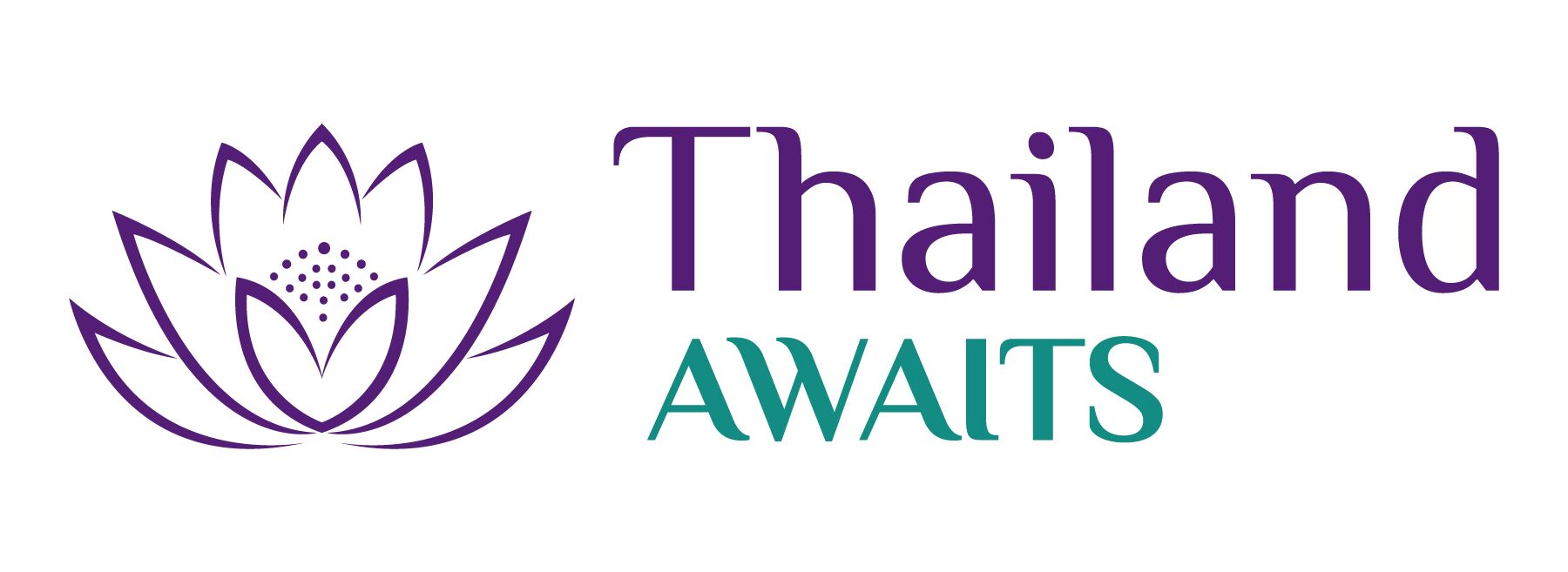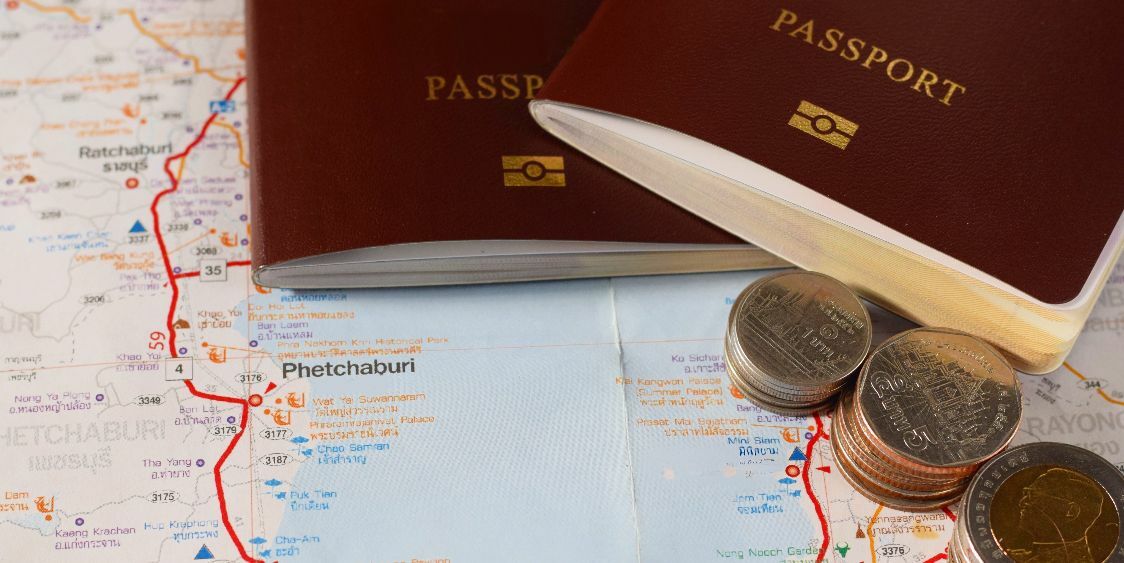Planning a Trip To Thailand
I have been visiting Thailand for over 20 years, and I now have a 5-year Destination Thailand Visa. Over this time I’ve helped hundreds of visitors plan their perfect Thai holiday.
Having the right information makes all the difference between a good trip and a brilliant one. I’ve put together this comprehensive guide based on real experience (and plenty of mistakes along the way!) to make your planning easier.
This page will walk you through everything from choosing the right time to visit (hint: it’s not always high season) to practical stuff like getting around and managing your money. I’ve also included all my favourite accommodation recommendations – places I’ve personally stayed or vetted for my readers.
Best Time to Visit Thailand
Let me be honest about Thailand’s weather – it’s hot pretty much all year round! But having lived through many seasons here, I can tell you exactly what to expect:
- Cool Season (Nov-Feb): This is what we call ‘cool’ in Thailand – think 28-30°C days with lovely low humidity. It’s my favourite time for temple-hopping and markets, though prices are higher and popular sites are more crowded.
- Hot Season (Mar-May): It’s properly hot now – temperatures regularly reach 35°C+. Perfect for beach time, but plan indoor activities between 11am-3pm to avoid the strongest sun.
- Rainy Season (Jun-Oct): Don’t let the word ‘rainy’ scare you off. Rainy season is one of my favorite times to visit – you’ll find great hotel deals, and the rain is usually predictable. Most days are sunny until mid-afternoon when the skies open up for an hour or two. Pack a light rain jacket and plan indoor activities around 4pm.
Each season offers unique experiences, so choose based on your plans. For more detailed guidance, check our monthly guides to see what to expect each month and where to go.
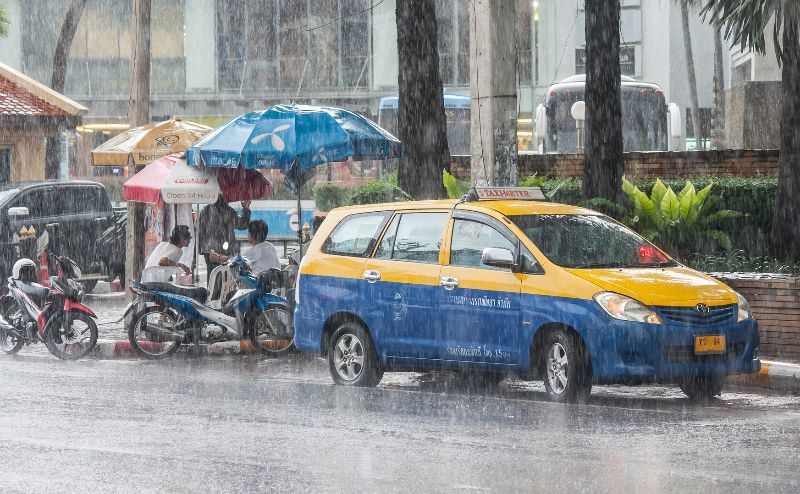
Visa and Entry Requirements
Let’s make visa requirements simple. If you’re from Australia, New Zealand, Canada, the USA, or the UK, you can stay for up to 60 days without applying for a visa beforehand. I’ve done this countless times – just show up with your passport, and you’re sorted. Need longer? You can extend your stay by 30 days at any immigration office for about 1,900 baht.
A couple of important things:
- Your passport needs at least 6 months validity when you arrive
- If you’re planning a longer stay, sort out your tourist visa before leaving home
- Always double-check the official Thai Government website because rules do change (I update this page regularly, but official sources are your best bet)
Thailand Digital Arrival Card
Heads up! Thailand has recently switched to a digital arrival system called TDAC. You’ll need to fill this out online before you arrive. It’s super simple to do and you don’t need to print it out when completed.
Here’s what you need to know:
- Fill it out within 3 days of arrival
- Have your passport and flight details handy
- It’s free and takes about 5 minutes
- You may need to show the QR code when you land but I have never needed to.
Be sure to use the official TDAC site, there are lots of unofficial sites trying to charge for these. If you arrive without doing it, don’t stress it can be completed at the airport. This will add time to getting through immigration though so best avoided.
Getting Around Thailand
Getting around Thailand is easier than you might think, after years of travelling around Thailand, I have learned to embrace public transport. It’s inexpensive and almost always the quickest way to get from A to B.
Here’s what I recommend
For longer distances, I usually hop on a plane – yes, trains and buses are cheaper, but with airlines like AirAsia and Vietjet, you can often find flights for under 1000 baht. Plus, you’re not wasting a precious holiday day on a 12-hour bus ride!
In cities, Grab/Bolt is your best friend (local versions of Uber). I use it all the time – it’s cheaper than regular taxis and no worries about negotiating fares.
Tuk-tuks are fun for short trips, but always agree on the price before hopping in.
In Bangkok, I’m a huge fan of the MRT(underground) and the BTS Skytrain – it beats sitting in traffic on Sukhumvit Road any day.
For exploring smaller towns and islands, many people rent a scooter for around 250 baht per day, but I only recommend if you’re confident and licensed for riding one at home. Always wear a helmet and carry an international permit – those 500 baht ‘fines’ from local police get old quickly! Not to mention voiding your insurance.
Want more detailed transport tips? I’ve put together specific guides for each type of transport – from navigating Bangkok’s public transport to booking overnight trains. You’ll find them all in my Thailand Transport Guide.
Currency and Budgeting
Managing your money in Thailand is straightforward once you know the local systems.
Here’s what we do to get the best exchange rates and avoid unnecessary fees:
- First up – forget changing money at your home airport. Wait until you get here and head to SuperRich (my go-to exchange) or any yellow-signed exchange booth. They offer way better rates than banks or hotel exchanges.
- At Bangkok airport, skip the exchange booths in arrivals – head down to the basement level where rates are much better.
- For ATMs, here’s the thing – they all charge a 220 baht fee per withdrawal, so make larger withdrawals to save on fees. I use Citibank ATMs when I can (they let you take out up to 50,000 baht at once) or CIMB (30,000 baht limit). Most others have a 20,000 baht limit.
Pro tip: When paying by card and they ask if you want to pay in your home currency or baht – ALWAYS choose baht. Those “helpful” currency conversions are anything but!
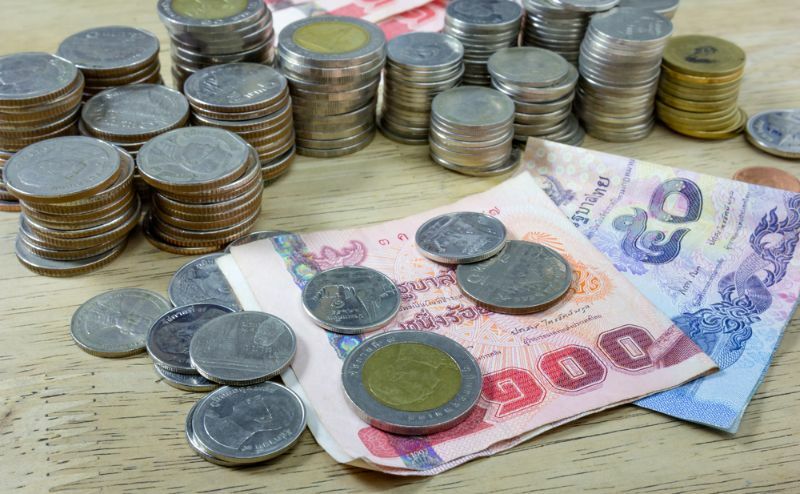
- Currency: Thai Baht (THB). Notes: ฿20 (green), ฿50 (blue), ฿100 (red), ฿500 (purple), ฿1000 (brown).
Tipping in Thailand:
Tipping isn’t expected but it’s always appreciated:
- Round up taxi fares or add 20-40 baht
- Leave 5-10% at restaurants if you enjoyed the service
- For massages I give 50 to 100 baht
- For tour guides, 200-300 baht per day shows appreciation for good service
Health and Safety
After living here for a year and using both public and private hospitals, I can tell you firsthand that healthcare in Thailand is excellent.
Private hospitals like Samitivej and Bangkok Hospital feel more like luxury hotels – complete with English-speaking staff and minimal waiting times. Even public hospitals provide good care, though you might face longer waits and language barriers.
A few practical health tips I’ve learned:
Hospitals & Insurance:
- Always get travel insurance that covers Thailand
- There are numerous private hospitals in Thailand with Bangkok Hospitals (across major cities) one of the biggest (but more expensive) chains.
Food & Water:
- I eat street food regularly – just stick to busy stalls with high turnover
- Use bottled water for drinking and teeth brushing (it’s cheap and everywhere)
- If you get a dodgy stomach, head to the pharmacy. Thai pharmacists are highly trained and can recommend appropriate medication for minor health issues – and most speak English
Vaccinations:
- Thailand doesn’t require any specific vaccinations for entry
- Your doctor might recommend hepatitis A and tetanus boosters
- If you’re planning to spend time in very rural areas, chat with a travel doctor about other options
Bringing medication into Thailand:
- Most common medications are fine, but always bring your prescription or a letter from your doctor
- Some medications like strong painkillers and ADHD meds need pre-approval from Thai FDA
- You can bring up to 30 days’ supply of personal medication
- Many medications are available over the counter here, but brand names might be different
- If you need specific medications, check if they’re available in Thailand before you travel – local pharmacists are really helpful if you are caught out.
Emergency Contacts:
- Tourist Police: 1155 (English-speaking)
- Save your hotel’s address in Thai on your phone
- Keep a photo of your passport and insurance details handy
The quality of healthcare in Thailand might surprise you – modern hospitals, English-speaking doctors, and often same-day specialist appointments.
Accommodation Options
From basic backpacker hostels to luxury pool villas, Thailand’s accommodation options are endless. I’ve stayed in hundreds of properties across the country, and here’s what I’ve learned:
- Booking platforms like Booking.com and Agoda often offer different properties and are often cheaper than booking direct
- Always read recent reviews (I trust booking platforms that require proof of stay for honest feedback)
- Location matters more than luxury – I’d rather a simple hotel in a great spot than a fancy one far from everything
Want detailed hotel recommendations for specific destinations? Check out my complete accommodation guide where I share all my favorite places to stay.
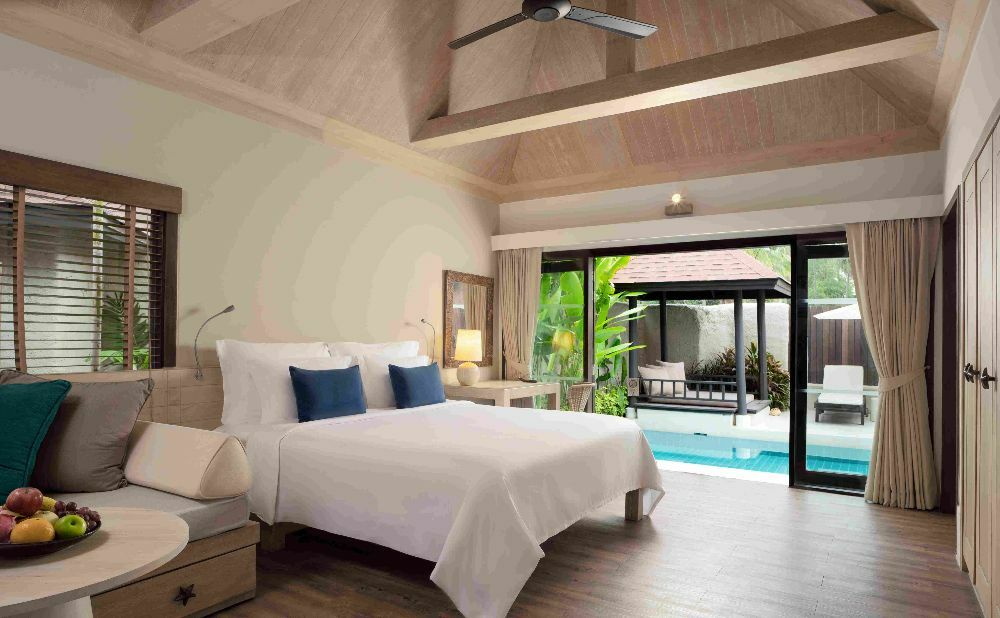
Must-Have Travel Essentials
Let’s talk about packing smart for Thailand. After countless trips, here’s what I recommend:
- Light, loose clothes, at least one item that cover your shoulders and knees (for temples)
- Good hiking sandals (Thailand involves lots of walking!)
- Two swimsuits (They can take longer to dry in humid weather)
- A light rain jacket in wet season
- Universal adaptor (Thailand uses 220V with mixed socket types)
Save your luggage space:
- Most toiletries are readily available and inexpensive, except sunscreen which is $$$ – bring enough for your trip
- Local insect repellents are more effective for tropical conditions, we use the one with the pink lid from 7 Eleven.
You can find most things you need in Thailand, often cheaper than at home. One exception – clothing runs small here, so if you wear larger than a western medium size, pack what you need.
Cultural Tips and Etiquette
Thai culture is wonderfully welcoming, but there are a few important things to keep in mind:
Temples and Sacred Spaces:
- Cover shoulders and knees (it’s respectful- carry a light scarf)
- Always take your shoes off before entering temples
- Sit with your feet pointing away from Buddha images
- For women travellers: Buddhist customs mean keeping a respectful distance from monks – this includes not handing them objects directly or making physical contact.
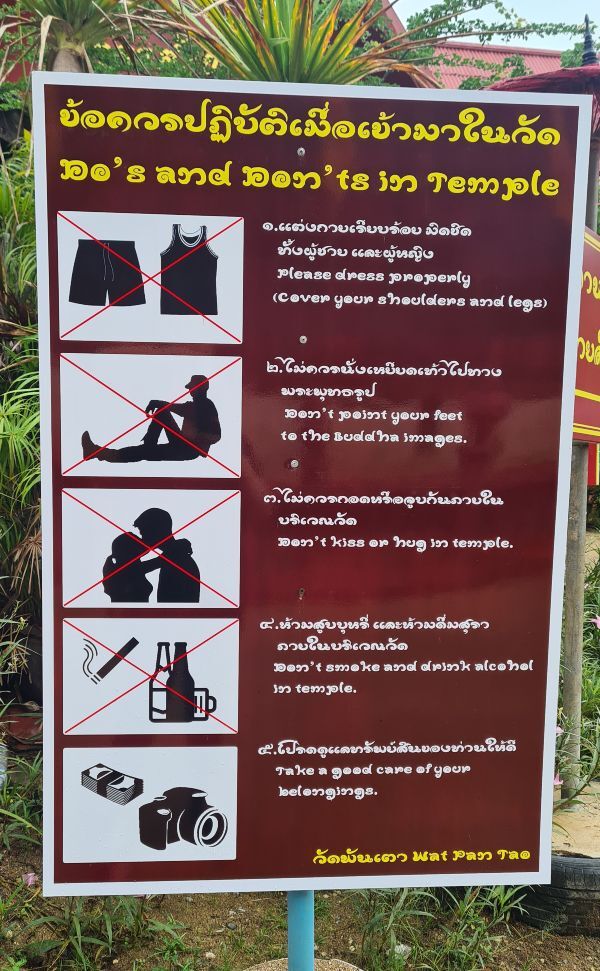
Day-to-Day Respect:
- Avoid touching anyone’s head (it’s considered sacred)
- Don’t point with your feet (they’re considered unclean)
- Staying cool when things go wrong is important in Thailand – getting angry or raising your voice usually makes things harder to resolve and can close doors rather than open them.
- The royal family is highly respected – always be respectful when discussing them
Helpful Thai Phrases:
- Sawasdee kha/khrap (hello – women/men)
- Khop khun kha/khrap (thank you)
- Mai pen rai (no worries – you’ll hear this a lot!)
Download my Thai Language food card for more useful phrases.
Remember, a smile goes a long way in Thailand. Most Thai people are very forgiving of cultural mistakes if they see you’re making an effort to be respectful.
Itineraries and Suggested Routes
Planning your route through Thailand depends a lot on how much time you have and what you love doing. Here’s what I typically recommend:
For a Quick 1-Week Trip:
- Start in Bangkok (2-3 days)
- Then either head north to Chiang Mai or south to the islands
- I recommend spending at least 2-3 days in each place – rushing through destinations means missing the experiences that make Thailand special.
Got 2 Weeks?
- You can combine north and south
- Consider less-visited spots like Koh Lanta or Khao Sok
- Include Kanchanaburi for its war history and waterfalls
3+ Weeks:
- This allows time to explore national parks like Khao Yai
- Visit Isaan for authentic food and cultural experiences
- Keep your schedule flexible – you might discover a local festival or get a great recommendation from other travellers that becomes a highlight of your trip.
Ready to start planning your Thailand trip? Our Facebook community Thailand Awaits is here to help. Join fellow travellers, get your questions answered by Thailand experts, and access free planning resources.
